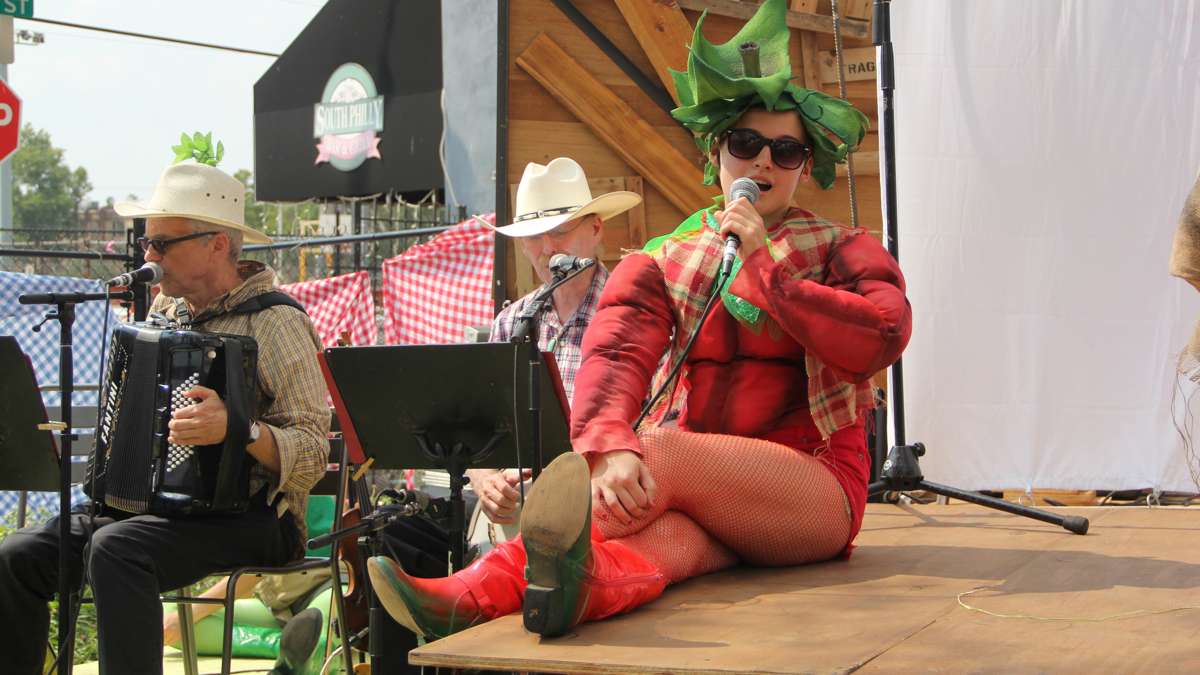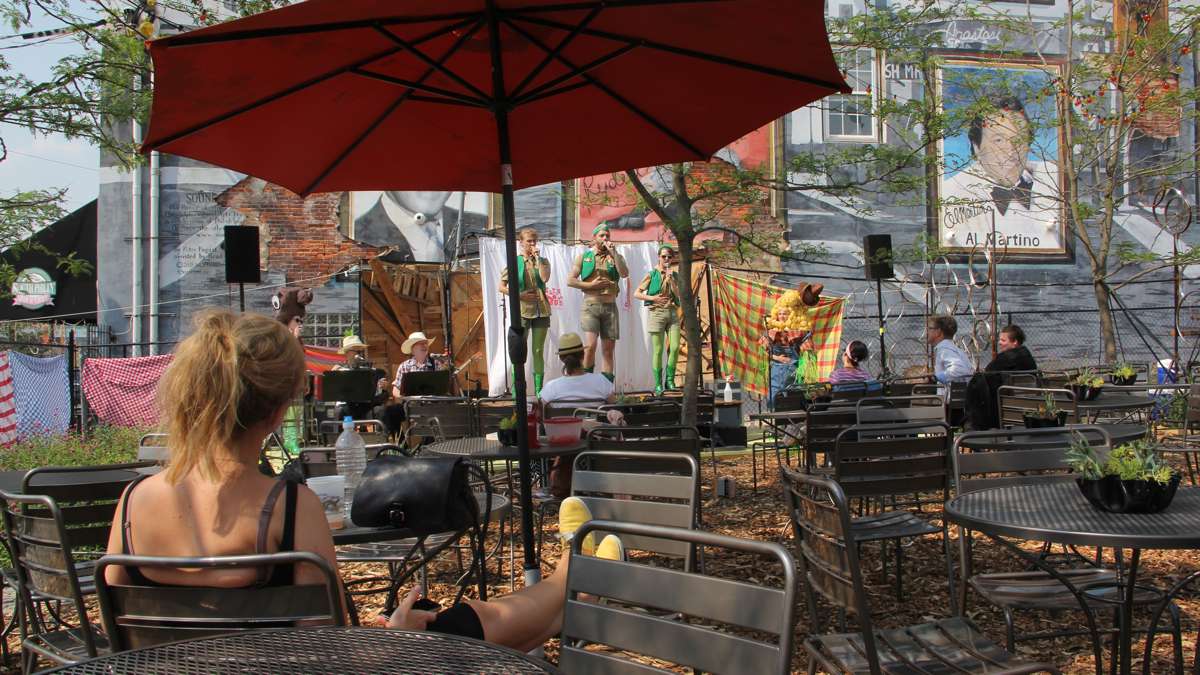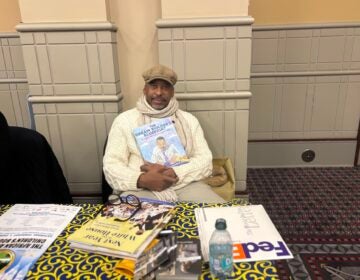‘Intelligent Plants’ perform in cabaret [photos]
Are plants intelligent? Can they communicate?
Can they also sing and dance?
Yes, says the Bearded Ladies Cabaret.
Its new experimental hijinks, “Bitter Homes and Gardens,” stars co-writer Mary Tuomanen as Jebediah Eatin-Good, a genetically modified ear of corn engineered by a fictitious agriculture corporation Eatin-Good. Jebediah is emcee of an old-timey country ho-down.
“Welcome to the Eatin-Good plant cabaret,” said Tuomanen, dressed like a corn mascot, to patrons of the temporary pop-up beer garden at 9th and Wharton Streets (a.k.a. Pat’s and Geno’s). “Just like your mom and daddy used to do, when plants and humans would come together for fellowship, communion, a few good laughs. I know you get it.”
Jebediah knows we get it because the ear of corn has been artificially designed to mimic the consumption patterns of humans – its’ easy to grow, easy to harvest, and easy to buy.
“Bitter Homes and Gardens” is inspired by a 2013 New Yorker article by Michael Pollan, “The Intelligent Plant,” which explained how plants react to stimuli in their environment. While they don’t “think,” per se, science shows they can sense very subtle changes to their surroundings and react to them. Plants also have ways to chemically communicate with insects and other plants.
The notion of intelligent plants is controversial, as “intelligence” implies something akin to a neurobiological brain. Nevertheless, the Bearded Ladies took the idea to its theatrical conclusion, giving plants personalities, charisma, and good pitch.
“We have a board of botanists and geneticists, from Pennsylvania Horticultural Society and Chanticleer and other gardens, to make sure we are scientifically accurate – or scientifically inaccurate in a funny way,” said co-writer and artistic director John Jarboe. “We’re trying to be rigorous about our scientific engagement, but also funny.”
The scientific absurdity of calling plants intelligent is complicated by research showing that plants are reactive, even social, in their own way – not in ways cerebrocentric to humans.
“The impossibility about doing a cabaret about a whole part of this world that we don’t really understand was really rich to us,” said Jarboe. “The implicit failure of that.”
Humans understand politics more readily than phytobiology. So the Bearded Ladies’ fictitious Eatin-Good, Inc, is loosely based on Monsanto, the agriculture biotechnology company often targeted by activists for its aggressive business and genetic practices.
The genetically-altered foods on stage, like the one-ton tomato and a glowing onion (“or glonion, made with real firefly DNA”) are easy satire, pandering to the audience with goofy gags, broad puns, and toe-tapping tunes.
Enter wild plants, who really couldn’t care less about people and their dramaturgical expectations. Invasive plants like poison ivy and a fern encroach on the show, transforming the hoe-down into a more abstracted performance.
“We imagined that GMO plants are good at assimilation, they very good at learning human behavior and mimicking it,” said director Sally Ollove. “The wild plants are performance art. Their movements are less human. We have plants communicate in ways other than sound.”
Just as fish gotta swim and birds gotta fly, Ollove stays cerebrocentric to her own species. “We’re a cabaret company, so there will be some singing.”
WHYY is your source for fact-based, in-depth journalism and information. As a nonprofit organization, we rely on financial support from readers like you. Please give today.












